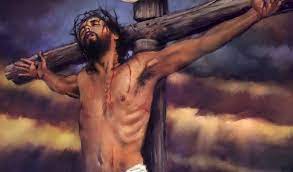The problem with evangelizing atheism is hope. It is, in fact, an outlook completely devoid of hope.
The problems Christians have to deal with are evil and pain. If you believe in an omniscient and omnipotent Creator, then why does He allow evil and pain? It’s a fair question.
So how do both sides handle these difficult questions.
The atheist will literally have nothing to say about hope. There is nothing in the way of hope they can offer except maybe 60 or 70 years of unchecked hedonistic behavior. They can tell you that you can live it up and chase after creature comforts while you’re here but in the end, nothing means a damn thing and there is no hope. Most atheists will not take this point on directly. It’s hard to soften the blow that you’re just a hopeless accident on a meaningless rock hurtling through nothingness. So they obfuscate and attack Christianity.
Now, how does the Christian answer the question of pain and evil? This is a difficult one but one cannot seriously argue that Christianity does not deal directly with the problem of evil and pain. In fact, the central focus of Christianity is that our hope comes from the Cross, a symbol of torture, evil, and pain. It explicitly urges you to accept your cross, to carry it.
Nowhere does it say that God wants you fat and happy. Creature comforts are not the point. The point is to love God. When we make our idol a life free of pain we are accepting the tenets of the hedonistic atheist way of thinking. Christ suffered in order to save us. Every Christian is told to be like Christ. And then we wonder why we are not fabulously wealthy and free of pain and suffering.
CS Lewis wrote:
There is no safe investment. To love at all is to be vulnerable. Love anything, and your heart will certainly be wrung and possibly be broken. If you want to make sure of keeping it intact, you must give your heart to no one, not even an animal. Wrap it carefully round with hobbies and little luxuries; avoid all entanglements; lock it up safe in the casket or coffin of your selfishness. But in that casket — safe, dark, motionless, airless — it will change. It will not be broken; it will become unbreakable, impenetrable, irredeemable. The alternative to tragedy, or at least to the risk of tragedy, is damnation. The only place outside Heaven where you can be perfectly safe from all the dangers and perturbations of love is Hell.I believe that the most lawless and inordinate loves are less contrary to God’s will than a self-invited and self-protective lovelessness…We shall draw nearer to God, not by trying to avoid the sufferings inherent in all loves, but by accepting them and offering them to Him; throwing away all defensive armour. If our hearts need to be broken, and if He chooses this as a way in which they should break, so be it.What I know about love and believe about love and giving ones heart began in this.
If we go to our knees in pain that Christ too went to his knees in pain. If our suffering leads us to Christ it is a victory, not a defeat.
In the end, the choice must be between nothingness and love. You can seek comfort or the cross.

Leave a Reply